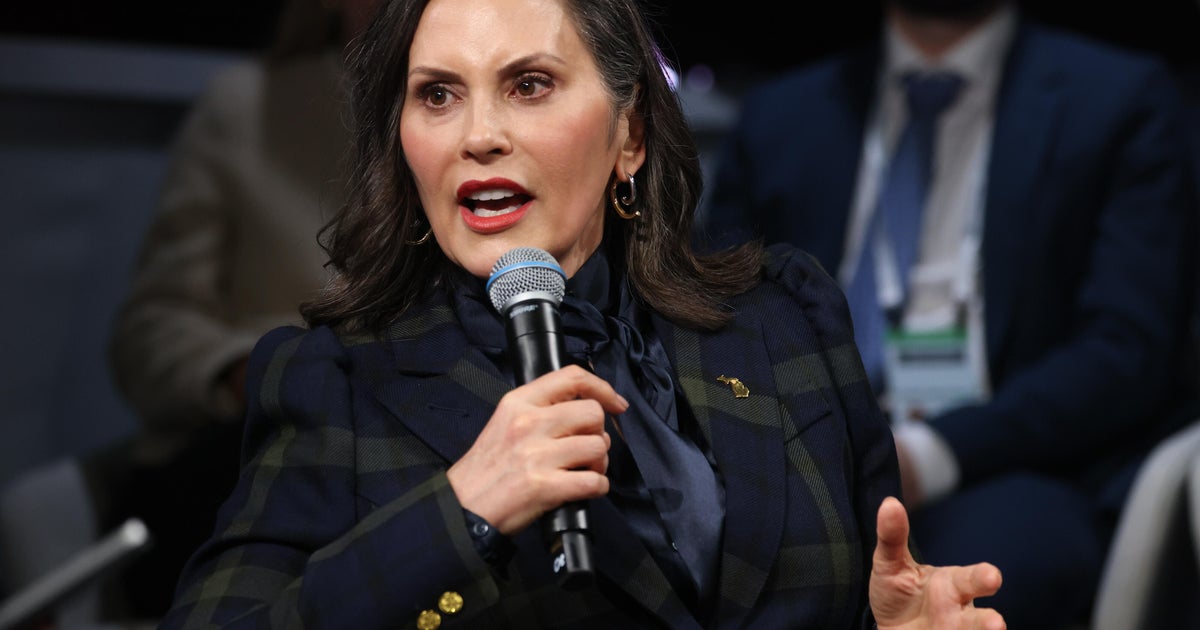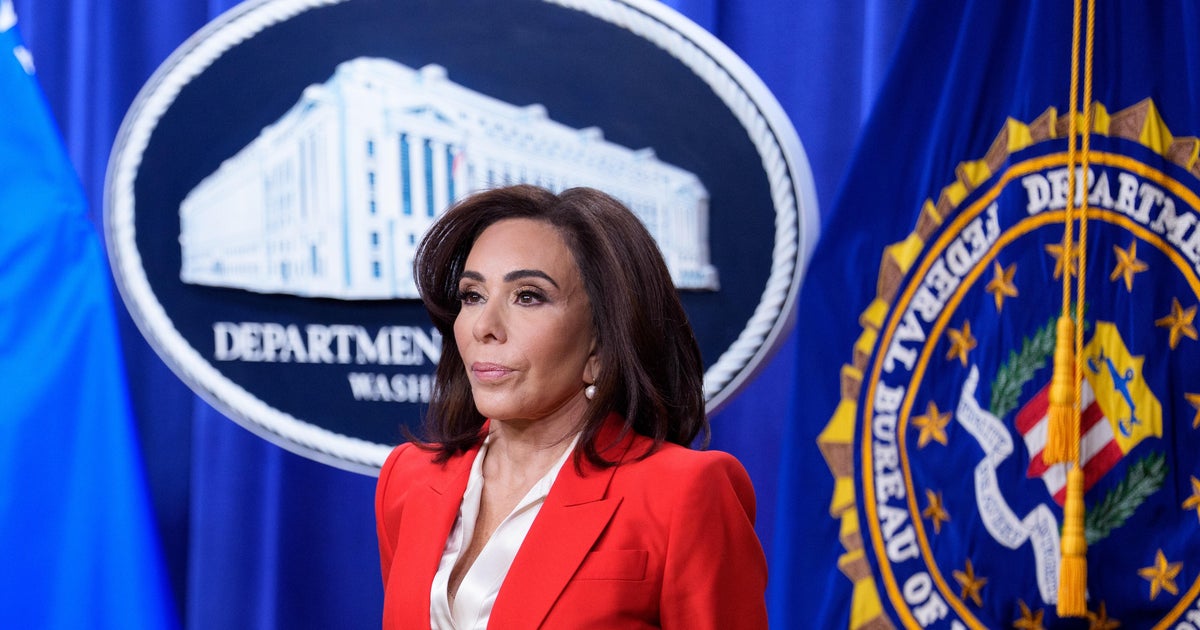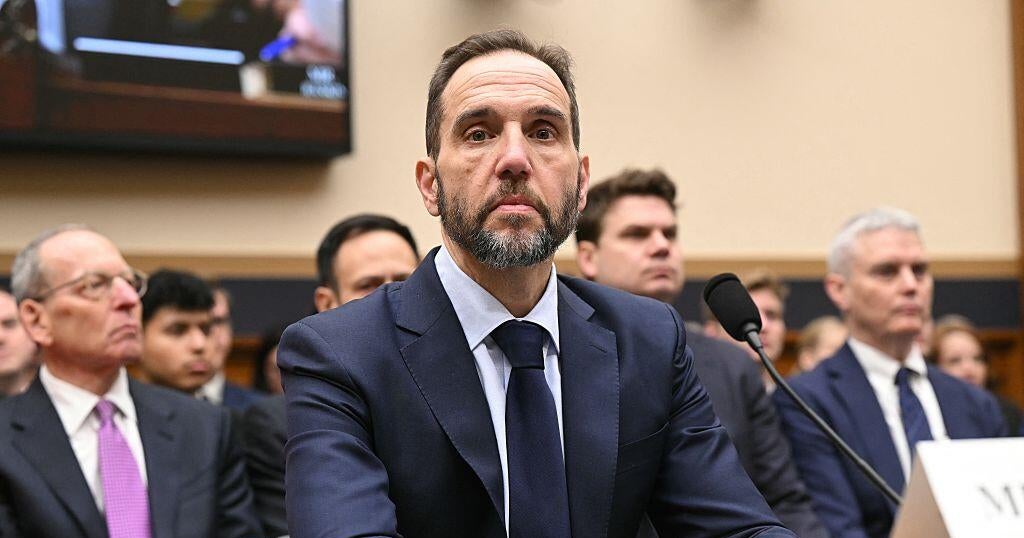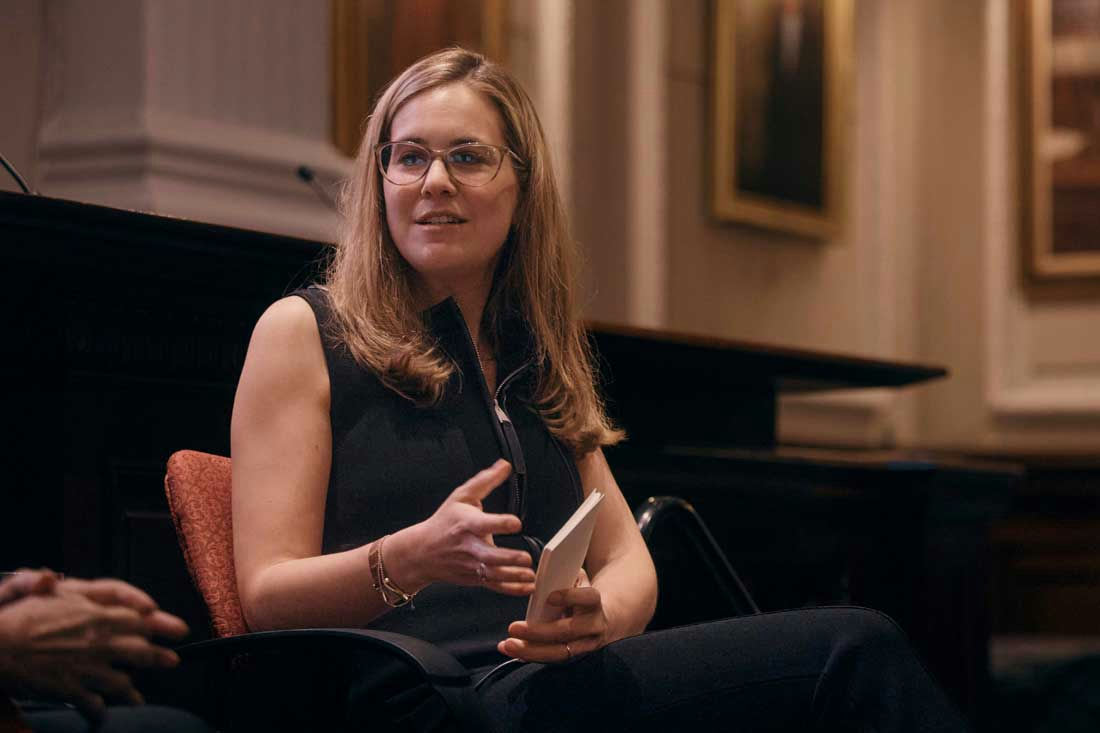Transcript: Former U.S. Attorney Preet Bharara on "Face the Nation," March 17, 2019
The following is a transcript of the interview with former U.S. Attorney Preet Bharara that aired Sunday, March 17, 2019, on "Face the Nation."
MARGARET BRENNAN: We're back now with former federal prosecutor Preet Bharara. He was of course, fired by President Trump after he refused to resign as U.S. attorney for the Southern District of New York. And he has a new book out, "Doing Justice: A Prosecutor's Thoughts on Crime, Punishment, and the Rule of Law." Preet, good to have you here.
PREET BHARARA: Thanks for having me.
MARGARET BRENNAN: I read the book. I want to get to some of the news of the week but first ask you actually how you ended this book because I think it resonates this week in the wake of the terror attack in New Zealand. You recount a story and a case of a- of a hate crime against someone who wanted to go out and kill Arabs after 9/11 and ended up killing some- or- and then injuring some South Asian individuals instead. Is this just a continuation of Islamophobia, of white nationalism? Is there something here or is as the president says, it's not really a broader issue at all?
PREET BHARARA: Well thanks for asking about the end of the book. I- I think a lot of the world is mourning the loss of innocent lives, up to 50 now in New Zealand. And, you know, from my old vantage point as a law enforcement officer, the chief law enforcement officer federally in Manhattan, law enforcement has certain tools right? You can do surveillance. You can infiltrate organizations that propound hate and try to engage in terrorist acts. You can also hold people accountable after the fact. But one of the points I make in the book "Doing Justice" over and over again is laws are not enough. Law can do some things but at the end of the day if you want to quell people's hatred, you want to make people get along better, you want to have harmony, you have to have good people who are willing to- to step up to the plate and do, among other things, call out bad things when they happen.
In the case that I was referring to that you mentioned in the- in the end part of the book, it was a Bangladeshi immigrant after 9/11 who was shot in the face by someone, Mark Anthony Stroman, who decided that he wanted to take revenge on behalf of I guess his race for people who had perpetrated the act of 9/11. Obviously going and randomly shooting people where they worked. And Rais Bhuiyan was not killed and decided in a way that I think is extraordinary to forgive the person who tried to kill him and tried to get him off death row and- and spare him the death penalty. He wasn't ultimately successful. But to my mind it's an- it's an inspiring story of how some people go beyond what the law even requires, beyond what the law allows, to try to have forgiveness and- and harmony go forward in the world. And I think we need a little bit more of that and a little bit less of the nasty rhetoric and a little bit less of, you know, people like the president not stepping up to the plate and calling out bad things when they're happening.
MARGARET BRENNAN: Important note there in this week. But I want to turn to some of the other news that we've seen on the political and legal front. You know, we saw on Friday the special counsel again ask for the fifth time a delay in the sentencing of Rick Gates who was a- a Trump campaign deputy because it was said he's cooperating. How should people understand this? What does this mean?
PREET BHARARA: Well not just cooperating but cooperating qu- in- in quote-unquote several investigations. And so you know I'm an outsider now and I don't still run the Southern District of New York and I'm not aware of what's going with various investigations that sometimes, you know, intersect with the special counsel's investigation. But I think people should view with some skepticism the notion that gets breathlessly reported every week that the Mueller investigation is coming to an end. It may be, because Andrew Weissman who is one of the top deputies in fact the top deputy with Ro- Robert Mueller, announced that he was stepping down which indicates maybe it's wrapping up.
But then as you point out, you have this letter about Rick Gates who's cooperating in multiple investigations and they delay the sentencing which seems to indicate that he is substantially cooperating and engaging in some success for the prosecuting team. So you might expect other indictments, other work going forward. So it doesn't seem to me based on that, although I don't know, that the work of the special counsel is ending anytime soon. Unless it's the case-- the one caveat I have is, unless it's the case that the cases on which Rick Gates is cooperating are being parceled out- parceled out to other U.S. attorney's office- offices like the Southern District of New York or D.C. or somewhere else so the special counsel team can step back and have its work be done.
MARGARET BRENNAN: Steve Bannon and a few other individuals have said that actually the biggest risk to the president is not from the special counsel but actually the Southern District of New York, which you know well. Do you agree with that?
PREET BHARARA: Well I don't know if I- I would frame it that way. It's a sort of a polemical way to frame it. But yeah, in the sense that the SDNY, which I led for 7 ½ years, doesn't have the circumscription on its ambit in the same way the special counsel does. The special counsel was appointed, you know, under a particular regulation and was supposed to look at only things relating to interference in the election and potentially collusion, quote-unquote collusion with- with Russians in connection with the- with the- with the election and anything arising from it. And one of those things that ari- that arose from it was obstruction. The Southern District of New York has a lot of people in it whose mission is only to find crime, be able to prove it beyond a reasonable doubt if it's in the interests of justice to do it. And they're very aggressive and they're very fearless and they're very independent. They don't care about politics. When I was there we prosecuted Democrats and Republicans and it didn't matter who they were, you know, affiliated with.
MARGARET BRENNAN: Yup.
PREET BHARARA: And- and so when one of- one of the things I tried to say in the book is to explain the philosophy and the culture of the men and women of the Southern District of New York.
MARGARET BRENNAN: And of course, state and federal charges and how a president's pardon could affect them are- are different too. I want to ask you as well about Paul Manafort. He was sentenced in D.C. this week. The sentence was added to. Before that in Virginia, what some would characterize as a light sentence, do you think justice is done?
PREET BHARARA: It's hard to say. You know punishment is a very difficult thing to calibrate. You know whether a few months more, a few months less--
MARGARET BRENNAN: Yeah.
PREET BHARARA: --is in the interest of justice, is hard to measure like- like mathematics. I agree with the people who said that the first sentence of Paul Manafort of 47 months was a bit low, given the guidelines and given the nature and seriousness of the crime and how long it went on. I think that overall the addition of 3 ½ years from Judge Amy Berman Jackson makes it overall a 7 ½ years sentence which is closer to right. I still think it's overall low, but it's hard to determine.
MARGARET BRENNAN: Preet Bharara thank you for joining us.
PREET BHARARA: Thanks Margaret.
MARGARET BRENNAN: The book is "Doing Justice." We'll be back in a moment.



